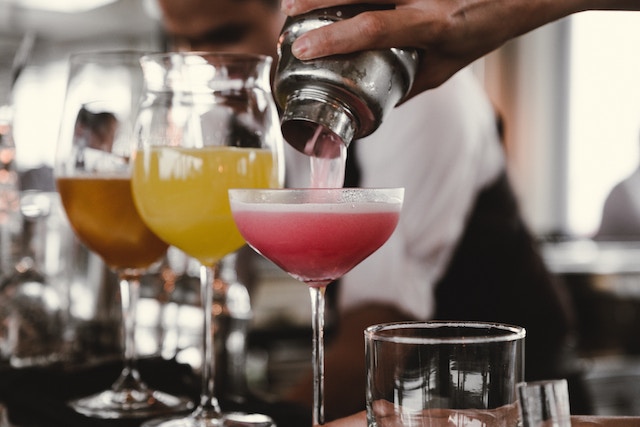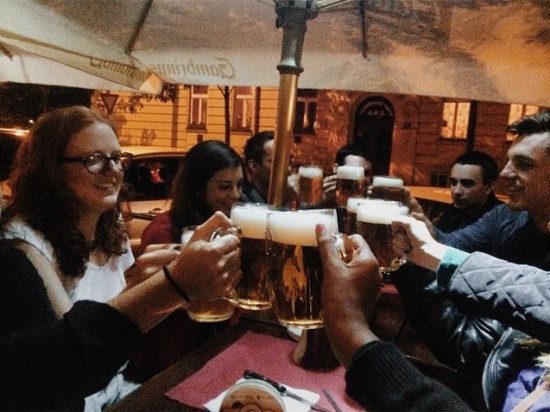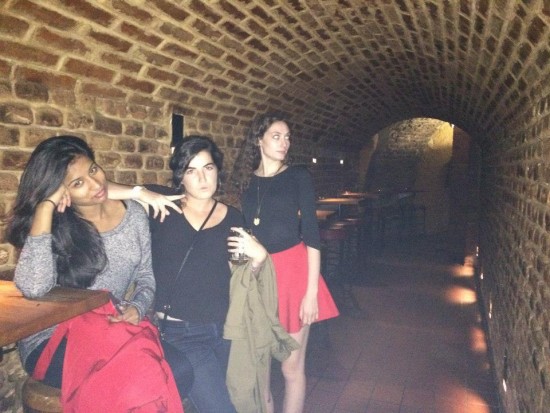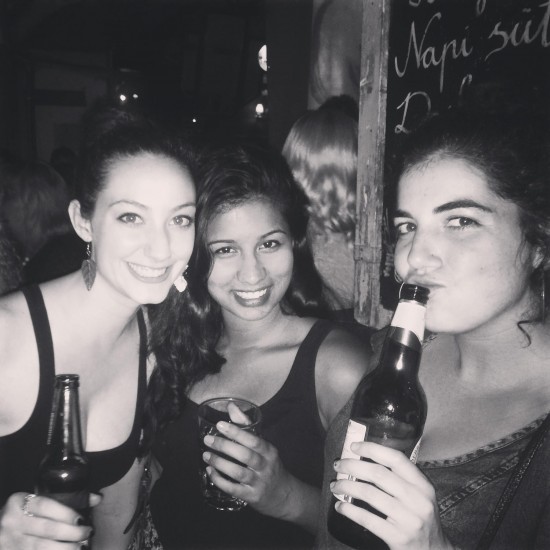Drinking in Europe: A More Civilized Approach

 In my last article, I discussed the “going out” culture in Prague, mainly regarding clubs and discotheques featuring large crowds and sick beats. It’s important to note, however, that most of the happening clubs in Prague are filled to the brim with foreigners. For a good Czech crowd, try to find a local pub that’s open as late as the clubs. It’s not uncommon to spend any weeknight nursing a couple of drinks in one of Prague’s underground bars rather than getting blackout drunk and dancing until your feet fall off.
In my last article, I discussed the “going out” culture in Prague, mainly regarding clubs and discotheques featuring large crowds and sick beats. It’s important to note, however, that most of the happening clubs in Prague are filled to the brim with foreigners. For a good Czech crowd, try to find a local pub that’s open as late as the clubs. It’s not uncommon to spend any weeknight nursing a couple of drinks in one of Prague’s underground bars rather than getting blackout drunk and dancing until your feet fall off.
In fact, I’ve realized over time that the idea of getting “super hammered” seems to be uniquely American. Since the drinking age in the U.S. is 21, many teenagers feel they’re missing out and start drinking as early as 16. Twenty-first birthdays are an excuse to get so drunk that you forget how you even celebrated, and alcohol is seen as this unattainable magical potion that you must strive to get your paws on.

Compared to America, I feel the European approach to alcohol is far safer for young people. Since the drinking ages are lower, ranging from 16 to 18, no teenager is in an inexplicably mad rush to drink frequently in an effort to get drunk. It’s more of a social activity done to enjoy exquisitely made cocktails or meals better accompanied with certain wines – not taking X amount of shots until you can’t walk straight.
I’ve realized over time that the idea of getting “super hammered” seems to be uniquely American.
It’s because of this culture that drinking in Prague has become a learning experience in itself. The alcohol is plentiful and cheap, yet we don’t take advantage of it in a way that leaves us regretting our decisions the next morning. Instead, we’ve taken the time to do beer tastings, attend wine festivals, and enjoy specialty beverages like fresh sangria. Even my professors have suggested we have a glass of cider or wine while reading through our assignments so that we better enjoy them.

A breakfast mimosa or Bloody Mary isn’t taboo. A beer with lunch doesn’t make you an alcoholic. Enjoying wine with dinner doesn’t mean you have a problem. With the casual infiltration of alcohol into European society, the stigma of alcohol we’re taught in the U.S. slowly fades away.
In all, there’s something to be said about respecting alcohol as a gastronomical pleasure or social beverage as opposed to a means of getting “wasted.”
In all, there’s something to be said about respecting alcohol as a gastronomical pleasure or social beverage as opposed to a means of getting “wasted.” Maybe it’s something Americans should consider the next time they start to consume a little too much.

Photo credits by Tansu Philip and Unsplash.








